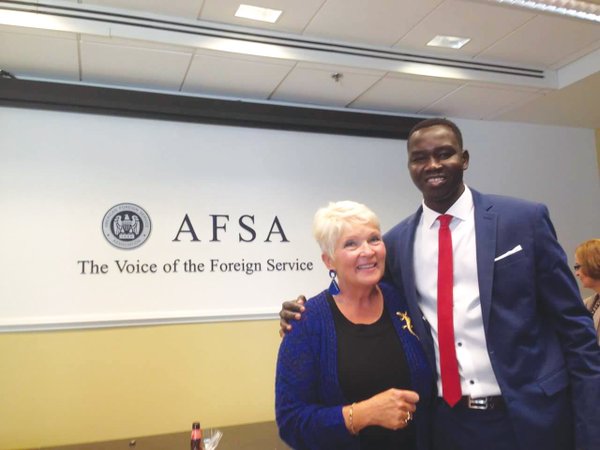Gai Nyok, one of 25,000 Sudanese orphaned by civil war—better known as the “lost boys”— has been sworn in as foreign service officer for the US Department of State.
Gai Nyok at the US State Department (photo: Engagestate)
Gai, now 29, fled his village of Abang in what is now South Sudan at the age of 5 and trekked over 1,500 kilometers (almost 1,000 miles) to a refugee camp in Ethiopia. In 2001, he was granted asylum to the United States where he was later taken in by an American family, completed high school, and won a scholarship to earn his bachelor’s degree at Virginia Commonwealth University. He went on to be a Thomas R. Pickering fellow, a government program that prepares young graduates for a career in the foreign service. Gai was sworn in at as a US diplomat in October 2015 and will be traveling to Venezuela and before taking his first assignment soon after that.
About 4,000 lost boys were resettled in the United States. As they have entered adulthood, their success stories have been publicized as testaments to the US amnesty program for children orphaned by the second Sudanese civil war that killed an estimated 2 million people between the 1983 and 2005. Another former refugee, Majur Juac, has gone from working as a security guard to becoming a chess champion and teacher in New York City.
Not all of the lost boys have had such success stories. Many more work low-wage jobs and never completed university or high school degrees. Others have fallen into alcohol abuse, violence, and crime, there have been cases of suicides. A study in 2005, found that 20% of over 300 lost boys showed symptoms of PTSD and problems assimilating.
“I’ve seen people who came over with me and not be able to have the same opportunities, or don’t have an American family to help guide them through and navigate the challenges that people face when they come here,” Gai said.
This article was first published by the US State department QZ.com




